


What's Your Problem?
Playlist by What's Your Problem?Every week on What's Your Problem?, former Planet Money host Jacob Goldstein talks with entrepreneurs and engineers tackling the biggest challenges at the forefront of technology. How do you make a tr…Follow the podcast:
185 clip(s) in playlist
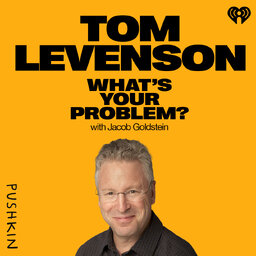
The Killer We Refused to See
After bacteria were discovered, it took scientists 200 years to figure out that they cause disease. If scientists had made the link sooner, hundreds of millions of lives could have been saved. In his recent book So Very Small, Tom Levenson, a professor of science writing at MIT, tells the amazing…
39:13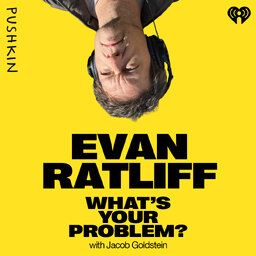
The Startup Run by AI Agents
Evan Ratliff co-founded a publishing startup in 2011. Now he hosts a podcast called Shell Game. In the latest season of the show, Evan creates a company run by AI agents. The project is absurdly funny – Evan calls it an office satire – but it also illuminates the power and limits of AI agents.
54:16Explicit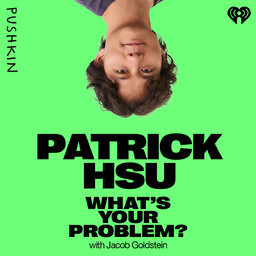
Can AI Help Solve Alzheimer’s?
Patrick Hsu is the co-founder of Arc Institute, which is integrating AI models and biological research. Patrick’s problem is this: How can you use AI to make biological research more efficient – and ultimately to find cures for Alzheimer’s and other complex diseases?
33:47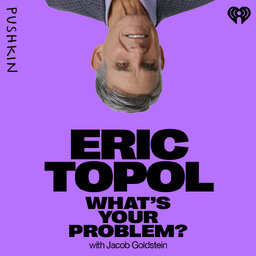
The New Science of Preventing Heart Attacks
In recent decades, medical research has fundamentally changed how we think about heart disease. This fresh understanding has opened up new ways to prevent heart attacks. Eric Topol is a cardiologist and the founder of the Scripps Research Translational Institute in San Diego. Eric’s problem is this…
32:54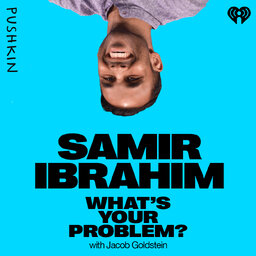
From Solar Pumps to Everything: Building a Market from Scratch
Samir Ibrahim is the co-founder and CEO of SunCulture. When he started the company, he thought he was solving a simple problem: How do you sell solar-powered pumps to help poor farmers irrigate their land? It turned out, he was working on something much bigger: How do you help poor farmers get rich…
40:58Explicit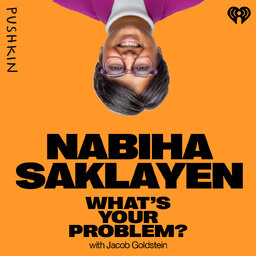
Mass-Producing Stem Cells to Cure Disease
Nabiha Saklayen is the co-founder and CEO of Cellino. Nabiha’s problem is this: How can you make personalized stem cell therapies quickly and cheaply? Induced pluripotent stem cells, or IPSCs, have shown tremendous promise as treatments for illnesses like Parkinson’s, leukemia, and heart disease.…
34:22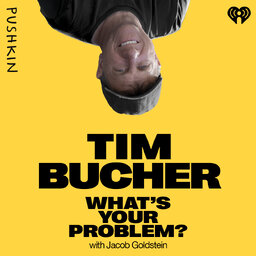
Building a Self-Driving Tractor to Change the Future of Food
Please take our survey https://tinyurl.com/wyplistenersurvey about the show! Tell us what you want to hear, and what would make it better. Tim Bucher is a farmer, and the founder and CEO of Agtonomy. Tim's problem is this: How do you build an autonomous tractor that can work for specialty crops li…
43:21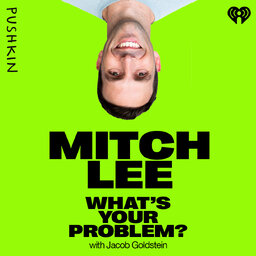
We’re Going to Need a Better Boat
Mitch Lee is the co-founder and CEO of Arc Boats. Mitch's problem is this: How do you build competitively priced electric boats? On today’s show, Mitch explains why water makes electrification so hard, the techno-economic puzzle of building giant battery packs, and how Arc’s high-end wake sport bo…
35:53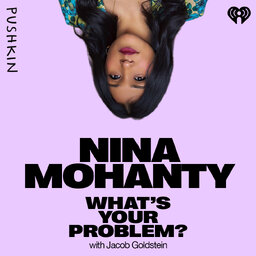
The App Where Strangers Lend Each Other Money
Nina Mohanty is the founder and CEO of Bloom Money. Nina’s problem is this: How do you build an app to help immigrants manage their money? On today’s show, Nina talks about bringing a saving and lending practice into the 21st century, navigating regulators who’ve never seen anything like it, and …
45:14Explicit
Introducing Business History: The Edison Invention People Don't Talk About
What's Your Problem? host Jacob Goldstein has a new show: Business History. How did Hitler’s favorite car become synonymous with hippies? What got Thomas Edison tangled up with the electric chair? Did someone murder the guy who invented the movies? On Business History, Jacob and fellow former Pla…
49:41
 What's Your Problem?
What's Your Problem?